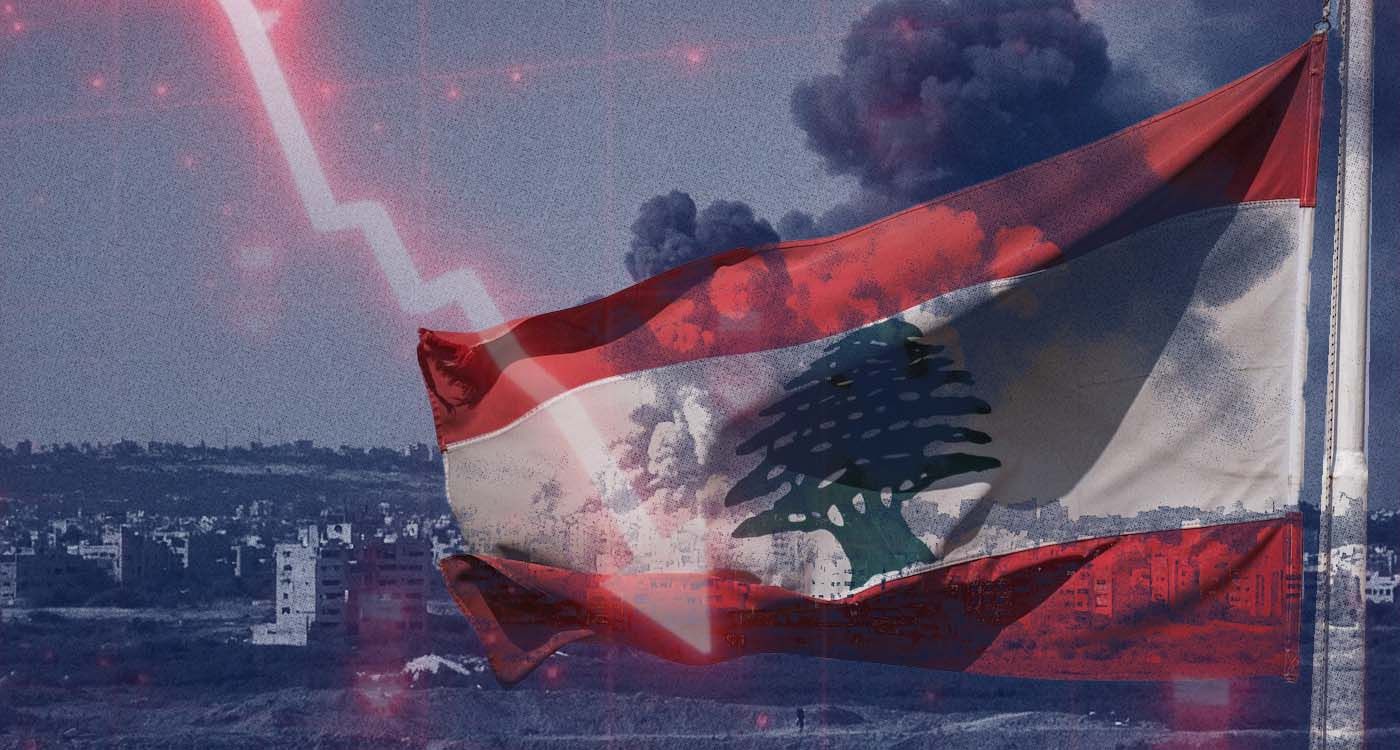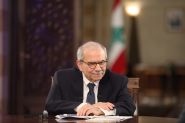
Lebanon is disintegrating. The country faces a myriad of challenges, including economic collapse, political instability and social unrest, which threaten to unravel the fabric of society and plunge its citizens into further despair. The mere observation of political and security events in Lebanon yields the unequivocal impression of a decaying country. The purported political transition that took place 5 months ago has plummeted brutally, and the situation borders on irreparability. This country has no more institutions, let alone the semblance of statehood.
The late presidential election and the formation of a completely dysfunctional government send us to a state of bolting void, whereby the very notion of statehood and nationhood is empty rhetoric and relegates the country to irrelevance. Lebanon’s national and political statures are euphemistic and refer to unsubstantiated realities. The new incumbents have already undermined their credibility and lost whatever legal and moral credentials they may have had while trying to uphold their faltering legitimacy.
The new team owes its ascent into power to the emerging dynamics created by the Israeli counteroffensive and to the unraveling of the “integrated operational platform” devised by Kassem Suleimani. Paradoxically enough, they started acting as if they were operating in a self-contained environment and away from the impact of a profoundly transforming geostrategic landscape.
Their shenanigans and ideological scripts are mandated by their shifting power games, relationship to the organized crime piloted by Hezbollah and the political blinders of a decrepit narrative weaved during the Cold War era on the crossroads between Palestinian militancy, the paltry rhetoric of Third World Marxism and political opportunism (Nawaf Salam). Obviously, these were not the kind of profiles that Lebanon was in need of at a time when it urgently requested a balanced transition that would enable it to end 65 years of open-ended cycles of violence.
Rather than seizing on the rising dynamics and engaging the US and the international community after negotiating a truce with Israel, they deliberately, each in its own right, overlooked the interim that was offered to them and reengaged Shiite fascism on its own terms while forgetting about the volatility of the regional environment — scotomization at its best. They forgot about the commissioned demilitarization mandates, simulated action in this respect, while the Israeli Army was destroying the leftovers of the Hezbollah military infrastructures daily and enjoying what they know best: blame externalization. In counterpart, they were fully coordinating the division of political, financial and economic spoils with the Shiite mafias in power and their oligarchic partners.
What’s pathetic is their inability to look retrospectively at what they have done and correct the course before it’s too late. It's a cycle that perpetuates instability, as lessons from the past remain unheeded. Until there is a genuine willingness to confront their actions and acknowledge the consequences, the pattern will only lead to further chaos and suffering for all involved. While making a separate political arrangement with Shiite fascists and their Iranian mentor, they employed deceptive tactics to placate the mediators and conceal their deceit. This fallacy has come to term with or without the end of the US negotiations; the destruction of the Iranian imperial forays is on its way.
One wonders whether the incumbents in power are likely to stay in power or should stay in power; obviously not. Lebanon’s sovereign constituencies ought to distance themselves away from them and start considering alternative routes, building new coalitions structured around strategic and institutional options that break away decisively from the cumulative geostrategic impasses.
The key to understanding the knotty and convoluted nature of these open-ended conflicts is the geostrategic bolts. The ending of the Iranian tangled web of power nodes and the prevention of the emergence of their Islamist corollaries have become inevitable, and none of this is likely to be achieved without a peace treaty with Israel. I think that the current interlude is finished, and it couldn’t be otherwise. We have to reckon with the hard facts of power politics and draw the proper conclusions if we are to move away from the deadweight of a decaying regional order and its hardwired illusions.
The late security breakdowns are symptomatic and far from being incidental. The Shiite fascists' political agenda and its trail of power politics are unlikely to be accommodated from a democratic perspective. The illusion of a negotiated political solution is based on the denial of political realities. It's about time to set a new course, be it at the geostrategic or at the national level. There are two ways to go about this: either to negotiate this major political shift or to surrender to the fatality of a doomed political predicament.
No matter what, we have to reckon with the death of a certain political, strategic and institutional configuration and stop dwelling on the relics of a past buried under the rubble of sixty-five years of imperial warfare and domination politics, which destroyed the very idea of a pluralistic and democratic Lebanon. It's about time.



Comments